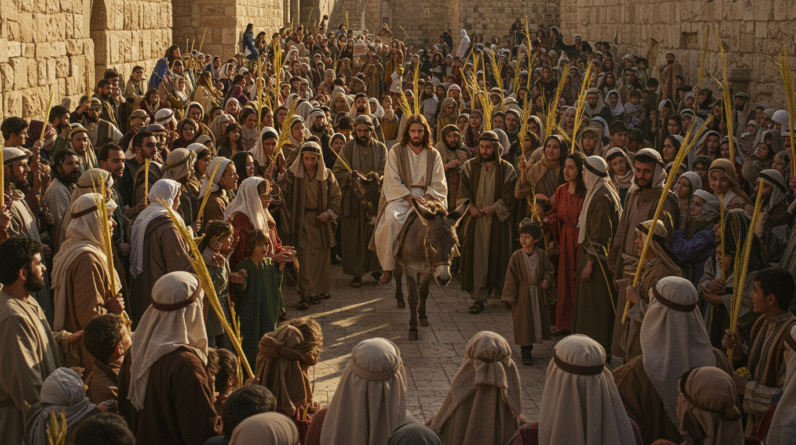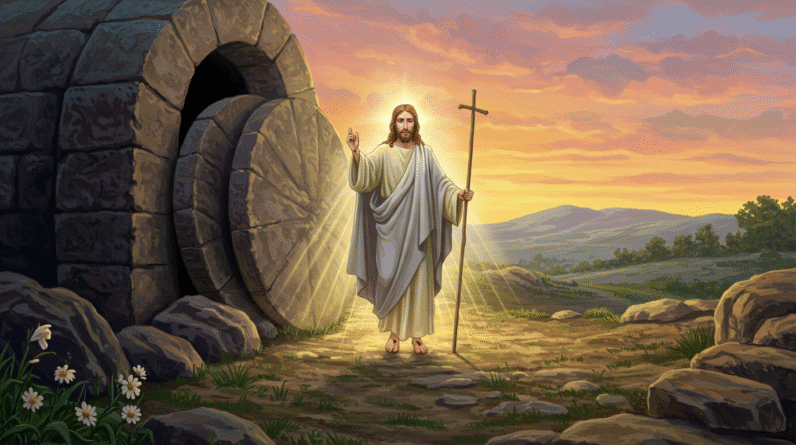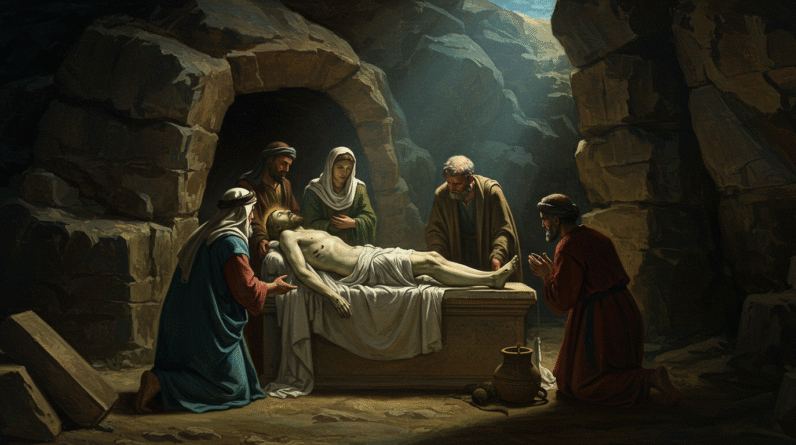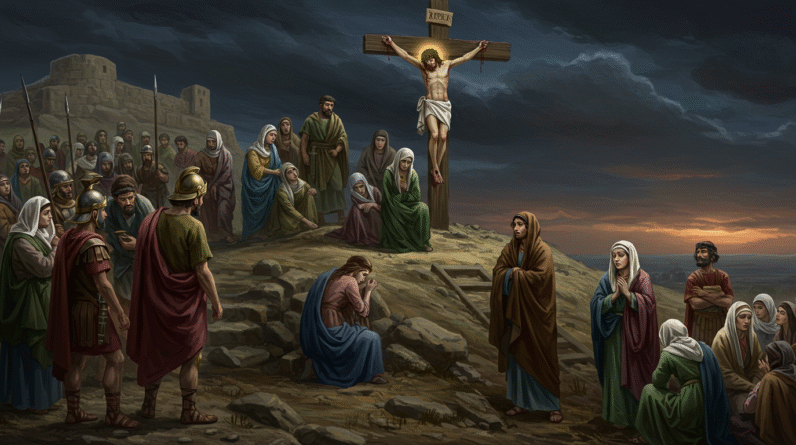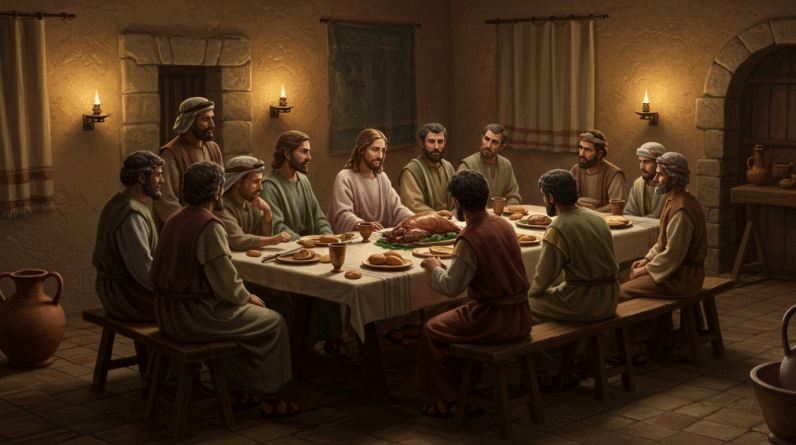Explore Holy Tuesday as Jesus teaches in the temple from Matthew 21–23. Dive into his profound parables and confrontations with religious leaders. A day of tension and insight.
🌿Holy Tuesday (Jesus Teaches In The Temple – Matthew 21–23)
Introduction
Ah, Holy Tuesday. Nestled within the significant strides of Holy Week, it might not receive the same attention as Palm Sunday or the emotionally charged Maundy Thursday and Good Friday, but it carries weight and purpose of its own. It’s an extraordinary time when Jesus engages with the people, teaching with authority and clarity in the temple, as described in Matthew 21–23. These interactions give us a fascinating insight into his teachings while emphasizing the tension building between Jesus and religious leaders. In this article, we’re going to dive deep into the themes and exchanges recorded on this particular day. Together, we’ll explore the profound lessons Jesus conveyed and what they might mean for you today.
Matthew 21:23-27 (NIV): The Authority of Jesus Questioned
Matthew 21:23-27: “Jesus entered the temple courts, and, while he was teaching, the chief priests and the elders of the people came to him. ‘By what authority are you doing these things?’ they asked. ‘And who gave you this authority?'”
Oh, the drama that ensued! Can you imagine the scene? Jesus, calmly teaching in the temple, is abruptly confronted by the pillars of religious orthodoxy. The chief priests and elders, undoubtedly agitated, demand to know by what authority he operates. It’s not just a curious inquiry; it’s a challenge. Jesus, master communicator that he is, responds not with a direct answer but with a question of his own about John the Baptist. What a way to flip the script, right? The whole exchange reveals an intriguing dynamic: the religious leaders are taken aback, unable to respond without digging themselves into a political or spiritual hole. It’s a stark reminder of how Jesus often approached confrontation—disarmingly wise, yet unyielding in his mission.
Matthew 21:28-32 (NIV): The Parable of the Two Sons
Matthew 21:28-32: “‘What do you think? There was a man who had two sons. He went to the first and said, “Son, go and work today in the vineyard.” ‘I will not,’ he answered, but later he changed his mind and went.”
In this parable, Jesus is like a novelist sketching a story with two relatable characters: the first son, rebellious yet remorseful, and the second son, compliant but false. How vivid and insightful this parable is! Jesus uses it to illustrate the dichotomy between words and actions. It’s fascinating because it challenges you to think beyond mere appearances or verbal commitments. True obedience, according to Jesus, is rooted in action—not just rhetoric or promises. His audience, sitting on the edge of the parable, is urged to evaluate themselves: Do their actions align with their professions of faith? It’s a relatable and enduring lesson on authenticity.
Matthew 21:33-46 (NIV): The Parable of the Tenants
Matthew 21:33-46: “Listen to another parable: There was a landowner who planted a vineyard. He put a wall around it, dug a winepress in it, and built a watchtower. Then he rented the vineyard to some farmers and moved to another place.”
Jesus’s storytelling prowess shines again with the parable of the tenants. It’s an epic tale wrapped in rich allegory—a landowner representing God, tenants symbolizing religious leaders, and the vineyard signifying Israel. The essence of the story lies in responsibility and consequence. The tenants refuse to give the landowner his earnings and ultimately kill his son. You can almost feel the tension among those listening as Jesus confronts them with the reality of their failure to honor God’s messengers. It’s compelling and slightly unsettling, a narrative packed with indictment yet a call to introspection and repentance.
Matthew 22:1-14 (NIV): The Parable of the Wedding Banquet
Matthew 22:1-14: “Jesus spoke to them again in parables, saying: ‘The kingdom of heaven is like a king who prepared a wedding banquet for his son.'”
Imagine receiving an invitation to the grandest wedding banquet, yet people are indifferent, even hostile, towards attending. The parable of the wedding banquet paints a vivid picture of the invitation to God’s kingdom, highlighting the people’s refusal to participate. It’s as though Jesus is extending a personal invitation to each of us, yet many decline, distracted by worldly affairs or outright rejecting the invitation. This story carries a timeless message about God’s kingdom being open to all, yet many turning away. It kind of nudges you, doesn’t it, prompting you to consider how receptive you are to the divine invitation in your own life.
Matthew 22:15-22 (NIV): Paying the Imperial Tax to Caesar
Matthew 22:15-22: “Then the Pharisees went out and laid plans to trap him in his words. They sent their disciples to him along with the Herodians. ‘Teacher,’ they said, ‘we know that you are a man of integrity and that you teach the way of God by the truth.'”
Here comes a classic scene, the Pharisees and Herodians attempting to ensnare Jesus with a loaded question about paying taxes to Caesar. It’s not just a financial query; it’s a political trap. By answering, Jesus stands to offend either the Roman authorities or the Jewish populace. But oh, how he maneuvers through this with elegant wisdom! By pointing to the coin bearing Caesar’s image, he famously declares, “Give back to Caesar what is Caesar’s, and to God what is God’s.” It’s a profound statement, one that reminds you of balancing civic responsibilities and spiritual allegiance. It challenges everyone to consider where their ultimate loyalty lies.
Matthew 22:23-33 (NIV): Marriage at the Resurrection
Matthew 22:23-33: “That same day the Sadducees, who say there is no resurrection, came to him with a question.”
Enter the Sadducees—yet another group of religious leaders with their agenda, attempting to stump Jesus. Their question about marriage at the resurrection is less about seeking truth and more a strategic play to undermine him. Jesus’s answer is masterful, dismissing their question by explaining that earthly institutions do not define heavenly existence. Rather, Jesus emphasizes the reality of the resurrection and God’s promise of eternal life. It’s a whole different perspective on life after death, reshaping one’s understanding of eternal relationships and God’s power.
Matthew 22:34-40 (NIV): The Greatest Commandment
Matthew 22:34-40: “Hearing that Jesus had silenced the Sadducees, the Pharisees got together. One of them, an expert in the law, tested him with this question: ‘Teacher, which is the greatest commandment in the Law?'”
The question of all questions, a test of theological precision and insight. Jesus responds succinctly yet profoundly, boiling down the essence of the Law to two commandments: love God and love your neighbor. It’s so simple, yet incredibly transformative. These commandments aren’t just rules to follow but a way of life. This passage echoes through the ages, tying faith and action together into the fabric of love. It’s like a mantra that nudges you to evaluate how you measure your faith—not merely by beliefs or rituals but through tangible expressions of love and compassion.
Matthew 22:41-46 (NIV): Whose Son is the Messiah?
Matthew 22:41-46: “While the Pharisees were gathered together, Jesus asked them, ‘What do you think about the Messiah? Whose son is he?'”
In a riveting turn of discourse, Jesus goes on the offense, posing a question about the identity of the Messiah. It’s a theological puzzle, turning the tables on the Pharisees. They offer a conventional answer—the Messiah is the son of David—but Jesus pushes further. This becomes a conversation not just about genealogy but about divine identity and authority. He’s encouraging them and you to think more broadly about who the Messiah is. It’s a moment that teases at the mystery of Jesus’ own identity, leaving the onlookers, and perhaps us, in awe of the depth and scope of his wisdom.

Matthew 23:1-12 (NIV): Warning Against Hypocrisy
Matthew 23:1-12: “Then Jesus said to the crowds and to his disciples: ‘The teachers of the law and the Pharisees sit in Moses’ seat. So you must be careful to do everything they tell you. But do not do what they do, for they do not practice what they preach.'”
Such a candid discourse, isn’t it? Jesus doesn’t mince words when warning about the hypocrisy of the religious elite. The focus here is on authenticity and integrity, compelling you to self-reflect: Are your actions congruent with your beliefs? Jesus calls out the performative nature of the religious leaders, urging his followers instead to seek humility and genuine devotion. It’s an invitation to embrace sincerity over showmanship, a call to walk the talk in the truest sense.
Matthew 23:13-39 (NIV): Seven Woes on the Teachers of the Law and the Pharisees
Matthew 23:13-39: “Woe to you, teachers of the law and Pharisees, you hypocrites! You shut the door of the kingdom of heaven in people’s faces. You yourselves do not enter, nor will you let those enter who are trying to.”
The “woes” serve as a sobering critique, a powerful denouncement of religious hypocrisy and obstructionism. Edgar Allen Poe wishes he could have conjured such dark litanies. Each “woe” Jesus pronounces is scathing, yet necessary—drawing attention to the gap between external religiosity and internal faithfulness. It’s not mere condemnation; it’s a heartfelt lament for spiritual blindness and missed opportunities for redemption. Jesus’ words invite reflection on how one might unknowingly block the path to spiritual wholeness—for themselves or others. It’s a reminder that transparency, humility, and genuine piety pave the way to authentic faith.
Conclusion
As Jesus taught in the temple on Holy Tuesday, his words reverberated far beyond the walls of ancient Jerusalem. What an incredible tapestry he wove through teachings, parables, and confrontations! Each encounter along the temple grounds during this week is not just a historical record—it’s a living narrative that challenges, inspires, and beckons you to explore your spiritual terrain. Holy Tuesday might be overlooked by some, overshadowed by the dramatic events to come. Still, it pulses with themes of faith, power, authenticity, and love. Each lesson encouraging introspection is as resonant today as it was over two millennia ago.
As a ClickBank Affiliate, I earn from qualifying purchases.
Acknowledgment: All Bible verses referenced in this article were accessed via Bible Gateway (or Bible Hub).
“Want to explore more? Check out our latest post on Why Jesus? and discover the life-changing truth of the Gospel!”




